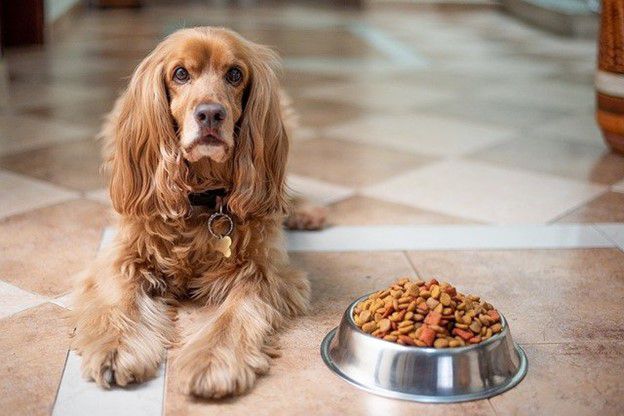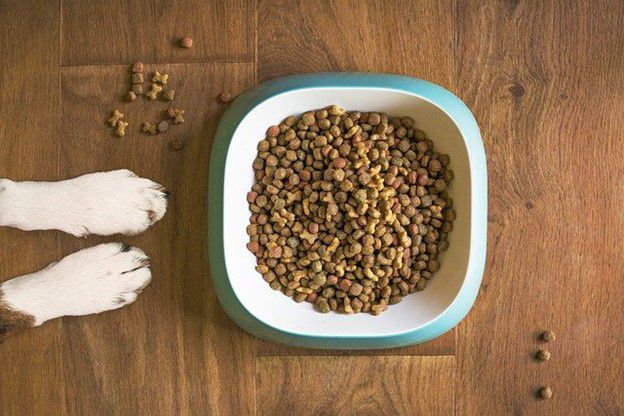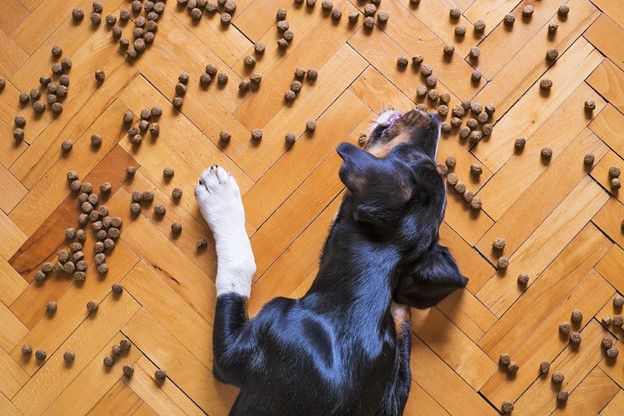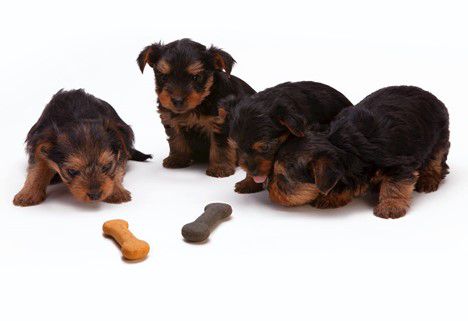As a rule, dogs love to eat. Anything a canine comes in contact with is fair game for nibbling, but some are selective with their consumption to the point of being downright picky. That can happen for numerous reasons; some can be serious, for instance, bouts of anxiety or stress, illness, food allergy, and more. In some cases, dogs avoid the good you provide because merely they are not hungry, perhaps due to an overabundance of treats.

Some canines simply do not like a particular brand, and others have become accustomed to table scraps. Pet parents need to find healthy dog food for picky eaters and be diligent in putting the puppies on a training program. The canine can learn to enjoy the food and develop a meal schedule meant to add structure to his eating habits. That means no more table scraps. A pup can still enjoy his mealtime along with the family, but it is important no one give in to the inevitable begging.
Reasons Puppy Won’t Eat His Dog Food
Each problem that you encounter with your pet has a root. Solving the issue means learning the underlying cause. Otherwise, you are merely “putting a Band-Aid on it.”
Anyone who has a dog that is not sufficiently eating wants to devise a solution that resolves it entirely. In order to do that, you have to figure out the “why” of the issue.
It can be an all-of-a-sudden switch in behavior or long-standing. Once you recognize the reason for the animal’s refusal to eat specific foods, you can work towards solutions. Visit this link for guidance on a “picky” puppy. Some more common reasons pet parents see with picky eaters include:

** A Newly Adopted Dog
When you newly rescue a puppy and bring him into your home, he will likely refuse to eat. That’s a common problem in most new pet parent situations. Whether they leave a familiar shelter or wean away from the mom and the other puppies, the canine can experience a great deal of stress.
Dogs adjust to their surroundings and develop a routine in their own time. It is important to be patient and allow them to acclimate. Once they do, the appetite usually comes back. Still, if the pup turns his nose up at the food, the animal might not like the choice.
The best idea is to check with the vet to ensure there are no underlying problems and gain suggestions on healthy food options. From that point, develop meal training.
** An Underlying Sickness
Especially troubling is the potential for an underlying health issue causing the pup not to eat. If there is a sudden refusal of food that was always well-tolerated or if you notice weight loss, the vet should see the dog right away to rule out illnesses.
The animal could have an allergy or intolerance to an ingredient in the food you bring to him. A dog senses this and will either refuse the meal or eat and develop a resultant stomach upset. The vet can determine which ingredient is the culprit and suggest an appropriate diet for the animal.

** Stressors Or Anxieties
Dogs can develop stress and anxiety for many reasons, including separation anxiety when pet parents leave home or if there are any significant changes to the animal’s lifestyle.
The result is generally a change in their appetite. It is a good idea to schedule pet meals with the family so that the canine feels included. But if there is a significant change happening that is disrupting the dog’s life, the problem needs addressing to relieve the pup’s stress.
That is always easier said than done. If a family member has to leave for some time, a dog can grieve that loss and refuse to eat. Some ways to help the pup cope include having items to remind him, like clothing with a familiar smell. You can also take his mind off the situation by keeping him busy with extra playtime, more walks, and especially loads of cuddles to help him move forward. Gradually, the puppy should take to his food again.
** Learn About Food
Dogs should be on a schedule with their food and have servings with each mealtime. You do not want to leave food sitting out constantly for a canine. The pup can end up grazing, which can ultimately lead to obesity and poor health.
Please make sure the food you select is one that the dog will like and can handle according to their size and capabilities. A small dog’s mouth might not be able to crunch some of the harder kibbles on the market and might stop eating these if presented in their bowl.
The most helpful suggestion is to allow the vet to see the dog upon adoption to guide you in determining the most healthful and appropriate food for the type of animal you have. The provider is an ideal resource to teach you also a reasonable amount of food and how often you should be feeding the animal. Find out ways to make dry food taste better at https://www.wikihow.com/Make-a-Dog%27s-Dry-Food-Tastier-So-He-Will-Eat-It-All.

Final Thought
Most healthy dogs will eat when they are hungry. The fact is, in some cases, a puppy might have less motivation to indulge in eating than others. Each pup is different in its appetite habits. That does not necessarily mean there is a problem. As long as the vet determines that the canine is healthy with no underlying issue and the dog is happy, there’s no reason to worry if he’s not running in circles at mealtime.
The most important thing to remember as a pet parent is to develop an appropriate feeding schedule with adequate servings at each setting. When mealtime is over, whether the puppy consumes the entire bowl or not, take the dish up. You will present the same serving at the next scheduled time. If the puppy is hungry, he will eat more.
Your dog’s vet is the best source for information on which foods are healthy, adequate solutions for your specific dog’s diet plan. Make sure to collaborate with the provider so that you can make an informed choice.
